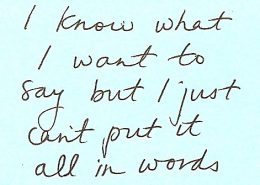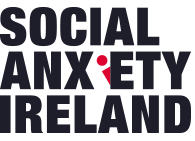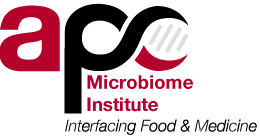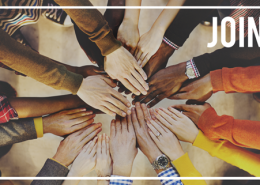 https://socialanxietyireland.com/wp-content/uploads/2018/09/I-know-what-i-want-to-say-but.jpg
577
471
Odhran
https://socialanxietyireland.com/wp-content/uploads/2018/03/sai.png
Odhran2018-09-25 15:57:552018-10-05 20:36:00What I Want To Say.
https://socialanxietyireland.com/wp-content/uploads/2018/09/I-know-what-i-want-to-say-but.jpg
577
471
Odhran
https://socialanxietyireland.com/wp-content/uploads/2018/03/sai.png
Odhran2018-09-25 15:57:552018-10-05 20:36:00What I Want To Say.affecting approximately 13.7% of Irish adults at any one point in time.
Menu: The Group
Group Programme.
Frequently Asked Questions.
How many people have social anxiety (SA)?
Prevalence rates of social anxiety vary across the world. It is believed that approximately 13% of the population in Ireland; 10% in the UK, 15% in Sweden; and 13% (that’s roughly 15 million) in the US have Social Anxiety in any given year.
So, you are not alone and chances are you have met others with Social Anxiety but did not know it!
Can I apply to the Group Programme if I have in the past, or am currently, attending individual psychotherapy?
Yes. Potential applicants to our programme are absolutely free to attend individual psychotherapy if they are finding this helpful. Indeed, if your psychotherapist adopts a cognitive–behavioural approach then your individual work will dovetail nicely with the general approach of our programme.
It is also a good idea to discuss this with your therapist.
They might be of the view that a vacation from working with them – while attending our programme – would be preferable. Just to note, we sometimes insist that certain applicants, who we deem particularly fragile, attend individual psychotherapy for additional support while attending our programme.
This often happens when our assessment finds that an individual is struggling with other troubling issues over and above that of social anxiety.
How long do I have to wait to get on the programme?
This is a difficult question to answer with absolute accuracy. Programmes last for 14-weeks. Each programme contains nine individuals. If you send us an email or call our office, we can tell you the current number of people on our waiting list and the approximate start date of our next groups. However, screening is very unpredictable. Sometimes the first nine individuals on our waiting list are screened as suitable and all of them eager to take a place on our programme. When this happens the waiting list is a true reflection of the waiting time. Other times, however, individuals may fail to attend for screening, or if they attend are deemed unsuitable, or for a variety of reasons are unable to avail of a place on our programme. When this happens the waiting list moves more quickly than anticipated.
In addition, we try to balance our programmes in terms of gender – an equal number of men and women in each group. Sometimes, when we are short of men (or women) we will shift down the waiting list to find one to balance the numbers. Given this, some people get ‘lucky’ with an earlier group than they might have expected.
What happens in the group?
The group uses primiarily a Cognitive Behavioral Therapy (CBT) based approach. This means talking about the kinds of thoughts and feelings people have before, during and after a difficult social situation and working on how these can be modified. Elements of mindfulness based practices are also incorporated into our programme.
Odhran likes to start the group slow and increase participant’s knowledge and understanding of both Social Anxiety and Cognitive Behavioural Therapy, so initially people don’t have to talk in front of the group too much. Once group members are more comfortable with each other (approximately week 7) Odhran begins role-plays – one with each person. Everyone chooses a social situation they find difficult and we recreate it in the group room as a role-play. We video this so people can get a realistic idea of how they appear to others (not as bad as you think) and so people can see how some of the things they do to cover up their anxiety often increase the appearance of anxiety. This is a difficult thing for people to do but at the end of the 14-weeks it’s often the section people found most helpful.
Most group members experience great improvement in their social anxiety over the 14-weeks but it’s important to know that recovery is likely to be a longer process and will go on after the group is over.
For those who wish to have continued support and keep up their contact with other social anxiety sufferers, we have a follow-up group for anyone who has done the group program held the first and third Wednesday of every month.
What can I do in the mean time while I’m on the Waiting list?
Odhran recommends a self-help book to everyone before they start the group, ‘Overcoming social anxiety and shyness: a self-help guide using Cognitive Behavioural Techniques’ by Gillian Butler. It uses the same CBT ideas as are used in the group and is a good companion to the course. This would give you a good idea of the basis of the group and maybe give you a few things you could work on in the mean time. Also, it might be helpful to find a good psychotherapist or psychologist who is familiar with Social Anxiety and ideally CBT trained.
We are hoping to develop a list of suitable psychotherapist / psychologist over the coming months which we will make available on this website. Finnaly, a GP referral to you local Mental Health Team, with a specific request to be seen by a clinical psychologist, is also recommended.
Are there any services outside of Dublin?
We are in the process of looking into this. The unfortunate reality is that specific services for Social Anxiety are few and far between. For the moment, our advice is to contact your local HSE who are better informed of what is available in your area. Hopefully, in time we will have a list of other groups/individual therapists who specialize in Social Anxiety.
PLEASE let us know of any other groups and/or therapists you find helpful so that we can share this information with others.
Is the Social Anxiety Programme helpful for other anxiety disorders, e.g., general anxiety or panic attacks or stress?
No. Our programme is very purposely designed to offer very specific assistance for individuals who are struggling with social anxiety (sometimes referred to as social phobia). It would NOT be helpful for individuals struggling with other anxiety disorders – e.g., general anxiety, simple phobias, agoraphobia, panic attacks or disorder, obsessional compulsive disorder, post-traumatic stress disorder – or ‘stress’.
If you are struggling with one of these other anxiety disorders, PLEASE do not contact us looking for advice on where you might get help – we do not keep a register of other services. This programme ONLY specialises in social anxiety. Rather, PLEASE continue your Internet search for other programmes that would be more suitable for your specific needs.
Is it normal for members of the group who have social anxiety disorder to become depressed and have suicide ideations?
As part of our screening for the group, we ask people to fill in a depression questionnaire, as it is quite common for people to be feeling depressed as a result of their social anxiety. However, if someone is depressed to the point of having suicidal thoughts, they need to be seen immediately by a mental health professional (GP or Psychiatrist) and be under their care before they can join the waiting list for our Social Anxiety Group.
People with suicidal ideation are allowed to participate in the groups so long as they are being managed by a Mentak Health Team who knows that they are applying for the Social Anxiety group and who Odhran can contact should the need arise.
It is reasonably normal for people with Social Anxiety to have suicidal thoughts but if you are currently suicidal or have felt that way in the past and believe that such feelings are in danger of recurring, we would need confirmation that you are under the care of Mental Health Team before we could allow you to be on the waiting list.
Do Social Anxiety Ireland recommend any particular therapist / psychologist working on an individual basis for Social Anxiety?
We get a lot of enquiries about this? As things stand, we DO NOT have a list of therapist who work on an individual basis with social anxiety.
Moreover, we are currently unable to recommend any specfic therapist or psychologist who has a special interest or expertise in the area of social anxiety. Our new website has a treatment register option and we are hopeful that in due course, we will be able to develop a list of therapist which we will post on our website.
How serious is social anxiety?
The impact varies with the individual. For some, social anxiety is limited to a very specific kind of performance, such as giving a speech or playing a musical instrument for an audience. For others, the anxiety is much more generalized and can prevent them from eating in public restaurants or using public lavatories.
It can interfere with education and affect building and maintaining friendships or romantic relationships.
Why is this considered a disease and not just one of many different kinds of normal personalities?
The answer lies in the severe effects social anxiety can have on everyday functioning. People with generalized social anxiety are not just a little nervous. Their lives are dictated by the need to either avoid certain situations or endure them with extreme anxiety.
When is the earliest in life that a person might display symptoms of social phobia?
Various studies have shown that up to 10 percent of children may have a shy and anxious predisposition from earliest childhood. Whether these are the people who go on to develop social anxiety remains to be answered. Most studies of social anxiety have indicated that the average age of disorder onset is in the teenage years.
Can social anxiety just go away by itself?
Generally not in most people. Social phobia is generally viewed as a chronic condition requiring intervention. Some people can conquer it on their own if they develop the appropriate skills. In most cases, however, professional assistance is recommended.
Are there any diagnostic tests for social anxiety?
Social anxiety cannot be detected through a blood sample or an X-ray. Instead, it is diagnosed based on information provided to a physician or therapist during a clinical interview.
Does social anxiety run in families?
Having a family member with social anxiety appears to heighten one’s risk slightly for developing it. The family influence appears to be related to both genetic and environmental sources.
Can social anxiety be prevented?
Because scientists are still striving to determine what causes the disorder, they do not know how to prevent social anxiety.
Mental health professionals urge people who suspect they have a problem to seek treatment right away. With early intervention, there is hope that as quality-of-life improves, some of the problems related to social anxiety can be avoided or reduced.
People with social anxiety, for example, are at an increased risk of alcoholism. With proper medication and cognitive-behavioral therapy, the use of alcohol as self-medication may be prevented.
CBT Group Treatment
The programme, which largely adopts a cognitive
behavioural model, is conducted over fourteen weeks.
If you wish to apply for a place on our Social Anxiety
Programme please read and follow the instructions in
the section ‘Process of applying for a place in our
Social Anxiety Programme.’
We Need Your Help!
Donations
We’re 100% non-profit and rely on the good will of people like you to enable us to continue to provide this invaluable treatment for so many people throughout Ireland.
100% of your donation goes towards helping people with Social Anxiety Disorder.
Latest News & Events
With the support of people like you, we’ve been able to help thousands of people throughout Ireland. Keep up to date with all things SAI via our blog with weekly updates, news, service updates and helpful information.



